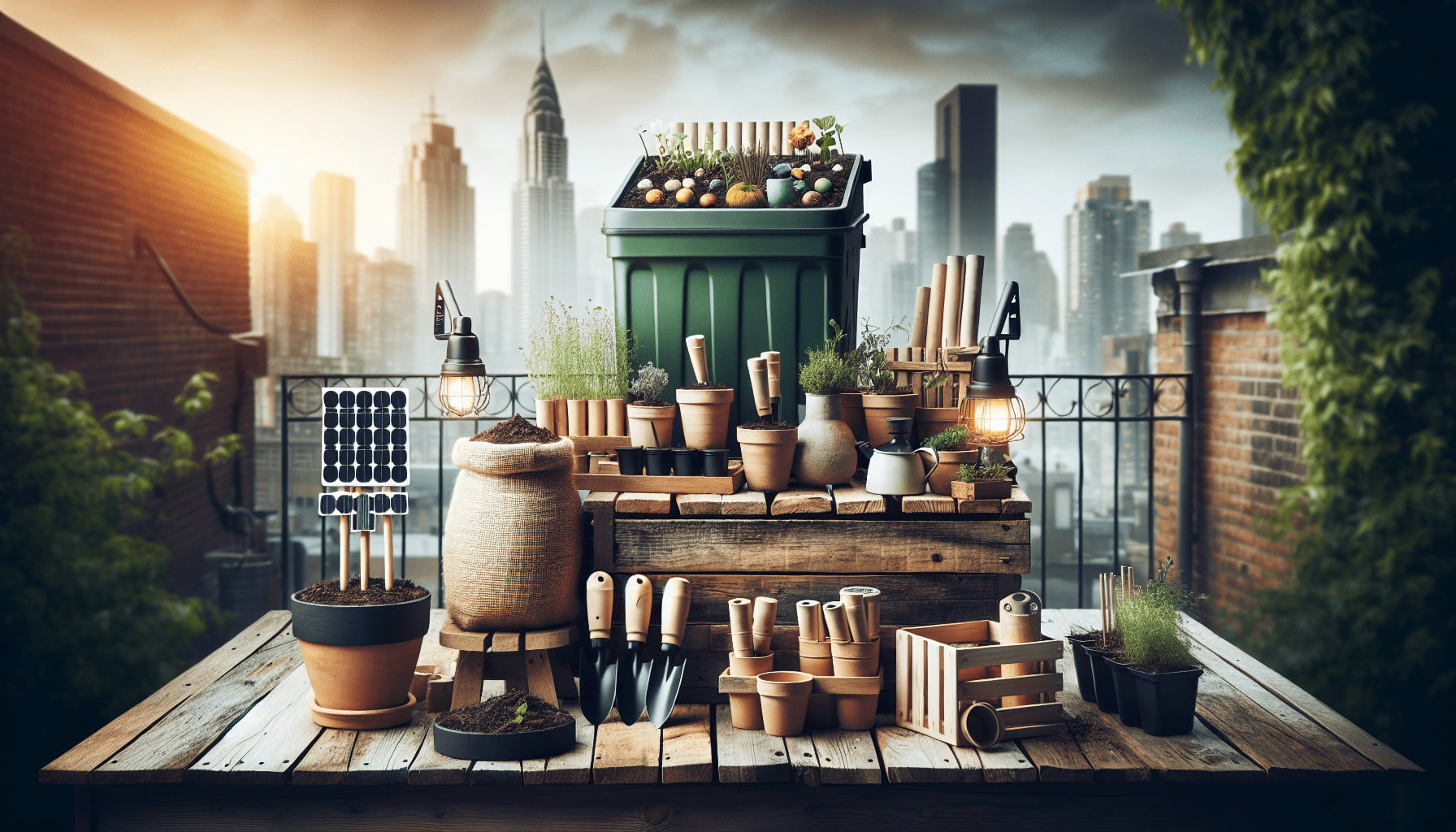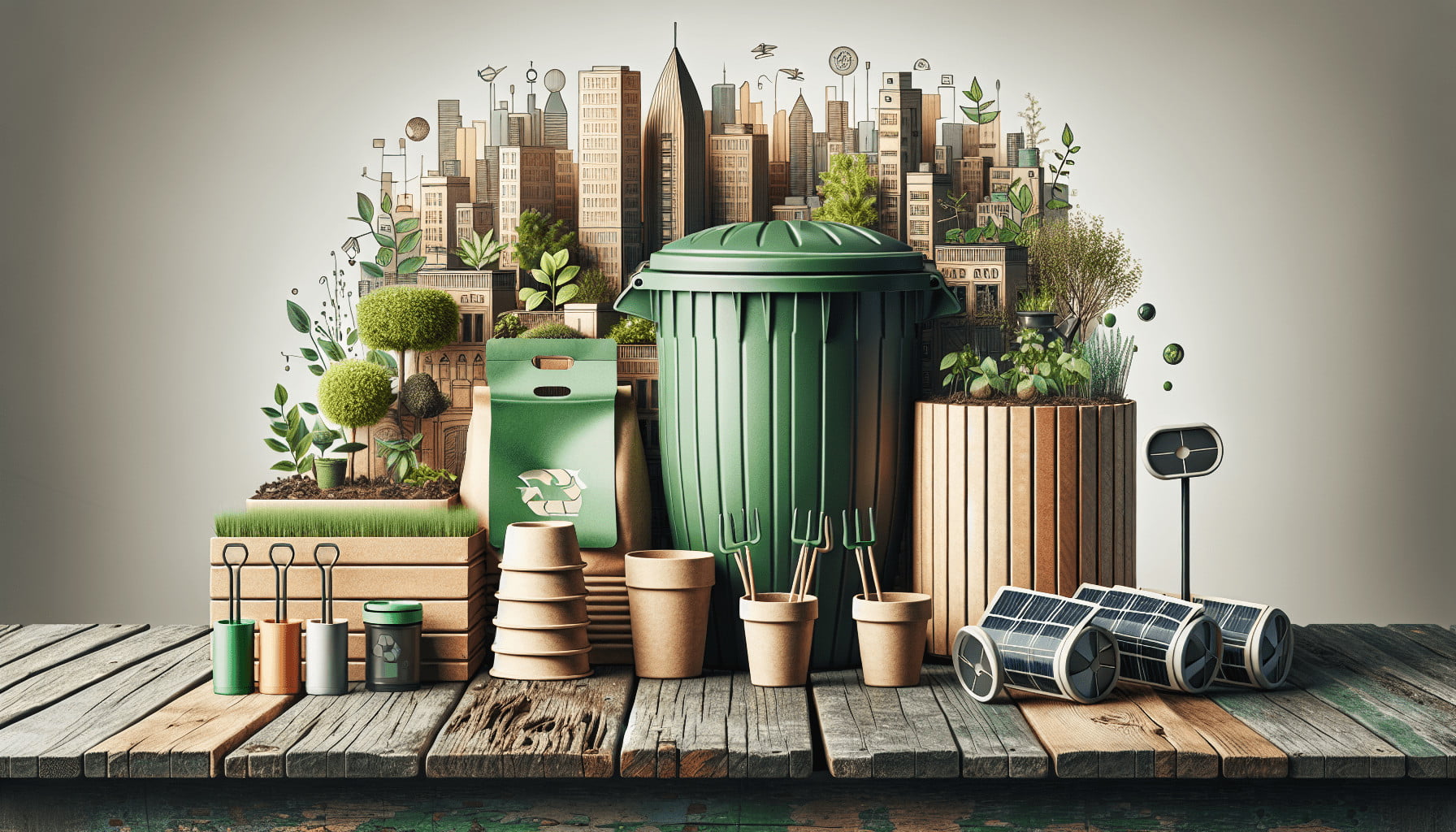Are you exploring the idea of making your urban gardening efforts more eco-friendly? Sustainable gardening has become increasingly important as many urban dwellers look for ways to grow their own food and beautify their urban spaces. To help you get started or improve your current practices, here are the top 10 eco-friendly tools for sustainable urban gardening.
1. Recycled Planters
Using recycled planters is an excellent way to reduce waste and give a second life to materials that might otherwise end up in landfills. You can use old containers, wooden crates, or even repurpose broken furniture.
Why Choose Recycled Planters?
Recycled planters help minimize your environmental footprint by reducing the need for new resources. Additionally, they add a creative and unique touch to your garden. You might be surprised at how stylish an old tin can or a wooden crate can look when filled with vibrant plants.
Creating Your Own
Creating your own recycled planters involves a few simple steps:
- Select Your Containers: Choose items like tin cans, glass jars, or wooden crates.
- Prepare the Containers: Make sure they are clean and have drainage holes.
- Decorate: Feel free to paint or wrap them to fit the aesthetic of your garden.
2. Rain Barrels
Rain barrels are an effective way to conserve water, which is crucial for sustainable gardening.
The Benefits of Rain Barrels
Collecting rainwater helps reduce your reliance on municipal water systems and lowers your water bills. Plants often benefit from rainwater as it contains fewer chemicals than tap water.
Setting Up a Rain Barrel
Installing a rain barrel can be simple:
- Choose a Barrel: Opt for a barrel that suits your garden size.
- Positioning: Place it under a downspout to collect runoff.
- Diversion: Ensure there’s an overflow system or a way to divert excess water away from your home.

3. Compost Bins
Composting turns kitchen scraps and yard waste into nutrient-rich soil, which is great for your plants and reduces landfill waste.
Advantages of Compost Bins
Composting reduces solid waste in landfills and provides you with free, natural fertilizer. This improves soil structure, adds nutrients, and encourages beneficial soil organisms.
Setting Up Your Compost Bin
To set up a compost bin:
- Choose a Container: Buy a commercial bin or make one from wood pallets or wire mesh.
- Add Materials: Mix green materials (like vegetable scraps) and brown materials (like leaves).
- Maintain: Turn the compost regularly and keep it moist to speed up decomposition.
4. Solar-Powered Garden Lights
Solar-powered lights are a sustainable choice for illuminating your garden without increasing your energy consumption.
Benefits of Solar Lights
These lights use energy from the sun, reducing your reliance on electricity and lowering your carbon footprint. They are easy to install and provide charming ambiance to outdoor spaces.
Choosing the Right Solar Lights
When selecting solar lights:
- Brightness: Determine how bright you need the lights to be.
- Style: Choose designs that complement your garden.
- Durability: Ensure they are weather-resistant.

5. Natural Pest Control
Avoiding chemical pesticides is essential for maintaining a healthy garden and protecting local ecosystems.
Why Use Natural Pest Control?
Chemical pesticides can harm beneficial insects, local wildlife, and even the plants themselves. Natural alternatives help maintain a balanced ecosystem and are safer for you and your family.
Methods of Natural Pest Control
Several natural methods can be employed:
- Beneficial Insects: Introduce ladybugs or praying mantises to your garden.
- Homemade Sprays: Use garlic or neem oil sprays.
- Companion Planting: Grow plants together that naturally repel pests.
6. Drip Irrigation Systems
Drip irrigation systems deliver water directly to the plant roots, reducing water wastage.
Efficiency of Drip Irrigation
These systems use less water than traditional methods and ensure that water reaches the plants’ roots where it is needed most. They can significantly reduce water loss due to evaporation.
Setting Up Drip Irrigation
To install a drip irrigation system:
- Plan Your Layout: Decide where you will run your tubing.
- Install Main Line: Lay down the main water line.
- Attach Emitters: Place emitters near plant bases.
7. Organic Mulch
Mulching with organic materials helps retain soil moisture, control weeds, and add nutrients to the soil.
Benefits of Using Organic Mulch
Organic mulch, such as wood chips, straw, or compost, decomposes over time, enriching the soil. It reduces the need for watering and weeding.
Applying Mulch
To properly mulch your garden:
- Choose Your Mulch: Select an organic material suitable for your plants.
- Spread Evenly: Apply a 2-3 inch layer around plants but not directly against stems.
8. Hand Tools Made from Sustainable Materials
Using hand tools made from sustainable materials ensures durability and eco-friendliness.
Advantages of Sustainable Hand Tools
These tools are often made from recycled metals or sustainably sourced wood, reducing resource consumption. They tend to last longer, reducing the need for frequent replacements.
Popular Sustainable Hand Tools
Some examples include:
| Tool | Sustainable Material Used |
|---|---|
| Garden Trowel | Recycled Metal, Bamboo Handle |
| Pruning Shears | Stainless Steel, Wooden Handle |
| Hoe | Recycled Aluminum, Bamboo |
9. SeedSaving Kits
Saving seeds from your plants can promote biodiversity and save money on future gardening.
Why Use Seed Saving Kits?
Seed saving helps maintain plant varieties and adapts plants to your local environment. It also reduces dependency on commercially produced seeds, which may not always be sustainable.
Using Seed Saving Kits
To start saving seeds:
- Harvest: Collect seeds from mature plants.
- Clean and Dry: Remove any plant material and thoroughly dry the seeds.
- Store Properly: Keep seeds in labeled, airtight containers in a cool, dark place.
10. Eco-friendly Plant Food
Feeding your plants with eco-friendly fertilizers ensures they get the nutrients they need without harming the environment.
Benefits of Eco-friendly Plant Food
These fertilizers are typically organic and free of harmful chemicals. They improve soil health and reduce the risk of pollution from runoff.
Types of Eco-friendly Plant Food
Available options include:
- Compost Tea: A liquid made from compost.
- Fish Emulsion: An organic fertilizer made from fish byproducts.
- Seaweed Extract: Provides trace minerals not found in other fertilizers.
Urban gardening with the aid of these eco-friendly tools can transform your green space into a sustainable haven. By adopting these practices, you contribute to a healthier environment while enjoying the rewards of gardening. Whether you are a seasoned gardener or just starting out, these tools and techniques can help you make a positive impact on your urban landscape.
